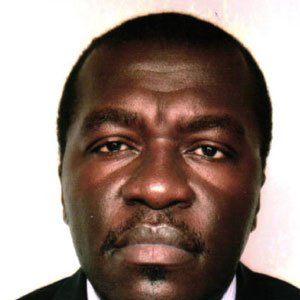
Joseph Henri IKORI a YOMBO holds a Diploma of Advanced Studies (DEA) in management sciences and a Specialized Higher Studies Diploma (DESS) in international relations, he worked at the Banking Commission of Central Africa (COBAC) from 1999 to 2016, notably as Head of the Off-Site Supervision Department. He is currently Central Director at the Bank of Central African States (BEAC).
In September 2022, he will defend a Doctorate in Business Administration, on the theme “Practices and explanatory elements of the distribution of dividends by CEMAC banks” under the supervision of Professor Yvon Pesqueux, professor holder of the “Development of Organization Systems” chair of the Conservatoire national des arts et métiers (Paris, France).
Thesis Direction
Pr Yvon Pesqueux
Thesis Title
Practices and explanations of dividend distribution by Central African Economic and Monetary Community (CEMAC) banks
Abstract
This research focuses on the theme: “Practice and explanatory elements of the distribution of dividends by CEMAC banks”. It is part of the work in the field of corporate finance. The starting question for this research is that of knowing how CEMAC banks behave in terms of dividend distribution in an environment where certain assumptions at the base of the main theoretical models are not valid. In this context, this research aims to answer the following question: what are the practices and explanatory factors for the distribution of dividends by banks operating in the CEMAC, in particular with regard to regulatory constraints related to their business? The main objective of this study is to describe the actual practice of dividend distribution by CEMAC banks, to provide an understanding of the processes underlying this practice and to offer a framework on this basis for prospective analysis of this aspect of corporate finance applied to banks in developing countries in the form of a coherent representation.
Through a qualitative and quantitative approach and following a constructivist epistemological positioning associated with a realistic application, we found that the distribution of dividends by CEMAC banks is strongly influenced by the type of shareholder (individual shareholders, shareholders from the public and financial sectors), the size of the bank (assessed through the total of its balance sheet), the dividends previously distributed (on the last three financial years), the cost of risk (assessed through the quality of the loan portfolio) and, to a certain extent, the level of equity and the presence of a dominant shareholder.
Moreover, we found that banks operating in CEMAC have not formalized a dividend policy. The dividend distribution process varies from one bank to another and involves various levels in the banking organization and around the parties concerned. The motivation of dividend distribution decisions also involves a clear need for signaling intended, not for a non-existent or embryonic financial market, but for current shareholders on the quality of management of the bank and to the banking supervisor on the solidity or not of the bank. These conclusions lead us to consider possible developments that could make dividend distribution decisions levers or instruments intended to establish policies carried out, at various levels, to ensure the strengthening banking stability and enabling banks to effectively play their rightful role in the financial and economic arena.

